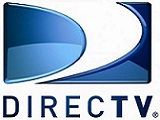DirecTV and Viacom Seal Tenuous Peace Deal: Viewers Relieved As Shows Return
Post Views 0
DirecTV, which airs to around 20 million households, issued a statement that a settlement has been reached and that the channels that were off the air were restored before dawn on Friday. Viacom acknowledged that they had resolved the issue and that both sides had reached a new agreement.
Financial terms on which peace was made have not been revealed, but it seems that DirecTV managed to turn the terms in its favor, including acceptance by Viacom of its denial to accept Epix as part of its lineup, a move had Viacom succeeded in pulling would have upped DirecTV’s programming costs by a cool $500 million.
To take or not to take Epix was the main bone of contention that was preventing a peace deal to be made. Even though DirecTV has said that the new deal is at the exclusion of Epix, Viacom has not acknowledged at such. On Friday, DirecTV in its news release said that carriage of Epix “is not required” by the new deal; Viacom however, noted that carriage of Epix is “an option” in the new deal.
Moreover, the peace deal contains provisions permitting DirecTV customers’ access to Viacom programming also on tablets, laptops and mobile phones.
Derek Chang, executive vice president of content strategy and development was very straightforward and candid about the settlement and said that there were valuable lessons to be learnt from it.
He said, “The attention surrounding this unnecessary and ill-advised blackout by Viacom has accomplished one key thing: it serves notice to all media companies that bullying TV providers and their customers with blackouts won’t get them a better deal. It’s high time programmers ended these anti-consumer blackouts once and for all and prove our industry is about enabling people to connect to their favorite programs rather than denying them access.”
Viacom had a more conciliatory statement to make. It said, “Viacom is extremely pleased to bring its programming back to DirecTV subscribers, and thanks everyone affected by the disruption for their patience and understanding during this challenging period.”
The two companies had been engaged in a no-holds barred battle, largely putting the blame on one another and lowering it in the esteem of the viewers. Following the expiry of DirecTV’s contractual rights to carry Viacom channels, there was a standoff between both, about how much the new contract should cost.
Viacom’s channels had previously received roughly $500 million a year from DirecTV. The latter alleged, that this time round they were demanding a billion more.
Even though the financial implications for both sides in the peace brokering deal have not been revealed, known sources say that Viacom will represent at least 6 percent of DirecTV’s programming costs, which means that they will gain by anything between $100 million to $600 million each year.
During the height of the dispute DirecTV blamed its customers’ frustration and anger on Viacom and said they were the bad guys who were greedy and wanted to up the subscription forcing users to pay for programs that they did not watch anyway.
That DirecTV is continuing to do so, even after the dispute has been solved suggest the peace deal is tentative, tenuous and at best temporary.
DirecTV and Viacom Seal Tenuous Peace Deal: Viewers Relieved As Shows Return by Harrison Barnes

